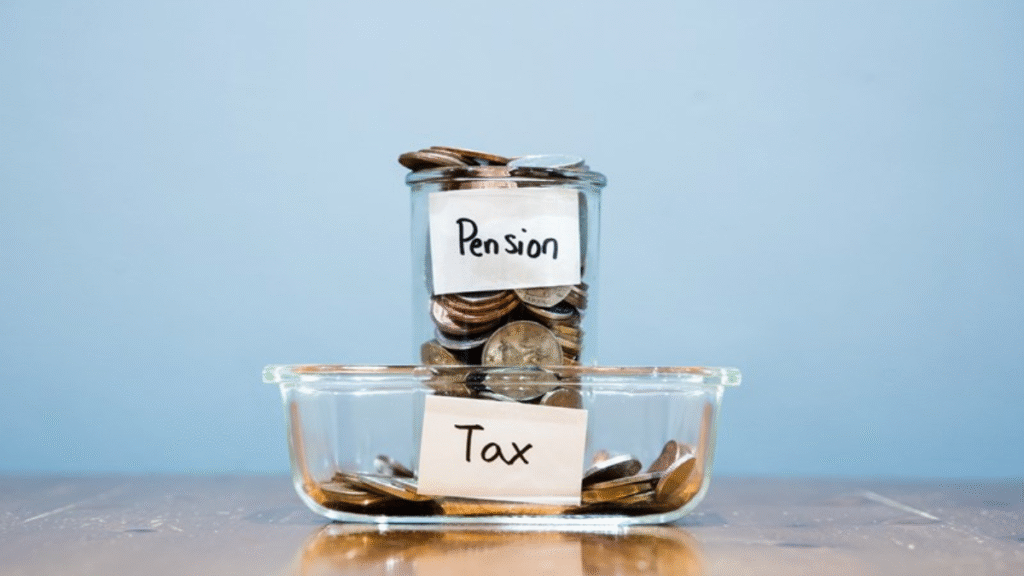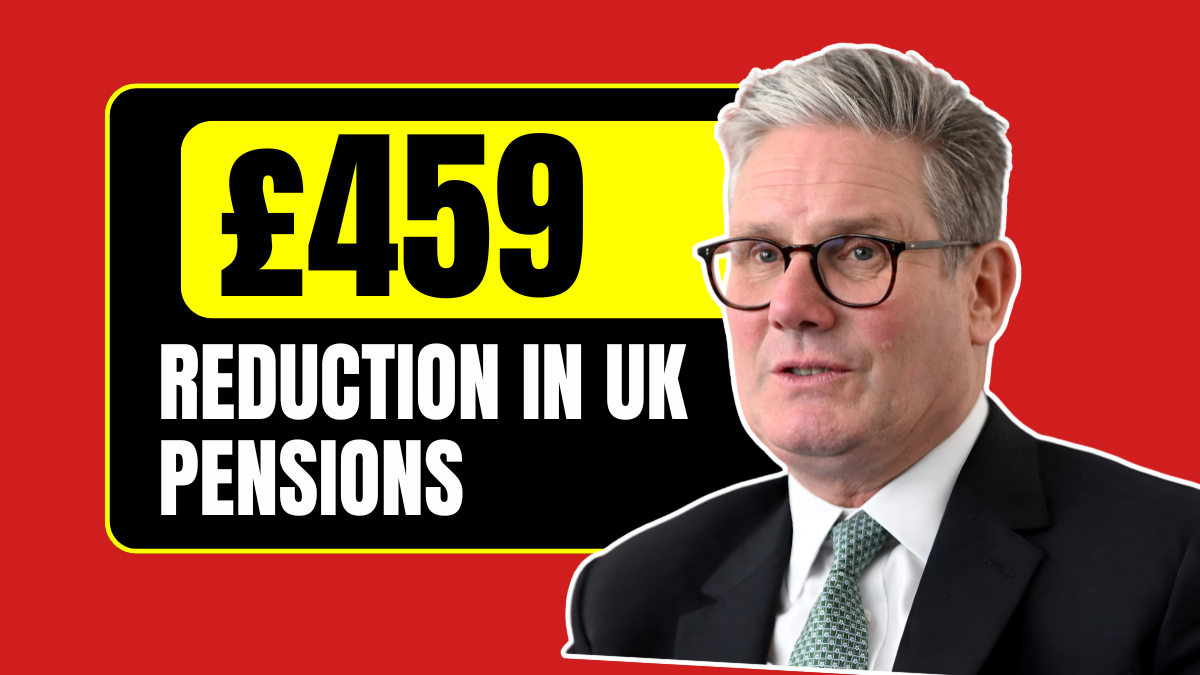If you rely on government support to help with day-to-day living expenses — whether that’s pensions, disability benefits, or Universal Credit — there’s some news you need to know.
Across the UK, households are seeing an average drop of £459 per year in financial support. This isn’t a one-time cut or a headline-grabbing announcement, but rather a series of smaller benefit changes that are adding up — and hitting the pockets of the country’s most vulnerable people.
Let’s take a closer look at what’s changing, who is being affected the most, and what practical steps you can take to protect your income and stay financially stable.
What’s Causing the £459 Loss
The loss isn’t coming from one single benefit being slashed. Instead, it’s the result of several policy shifts rolled out quietly over time. These include stricter eligibility rules, reduced allowances, and changes to how certain benefits are paid.
The government says the aim is to cut long-term welfare spending and encourage more people back into work, especially after the economic shocks of COVID-19 and rising inflation. But for many, especially older people, disabled individuals, and low-income families, the outcome has been a noticeable drop in support.
Who Is Being Hit the Hardest?

Let’s break it down. The groups most affected by the recent benefit changes include:
- Pensioners, particularly those who no longer automatically qualify for winter energy support.
- Disabled individuals who rely on Personal Independence Payment (PIP).
- Working families and Universal Credit claimants, who have seen reductions in their work allowances.
Each of these groups faces different challenges, so let’s look at them one by one.
1. Winter Fuel Payments: No Longer for Everyone
For many years, pensioners automatically received £200 to £300 during the winter to help with heating bills. But not anymore. Now, only those who receive Pension Credit or similar low-income benefits will continue to get this help.
Real-life impact:
Take the example of Mrs. Hughes, a 74-year-old pensioner from Birmingham. She used to rely on her Winter Fuel Payment to help with heating costs. But since she no longer qualifies for Pension Credit, she’s lost that support — right when energy bills have risen over 35% since 2021.
What you can do:
- Check if you qualify for Pension Credit – even small savings or pensions may not disqualify you.
- Apply for the Warm Home Discount – this gives eligible people £150 off their energy bills.
- Ask your local council if you’re eligible for Cold Weather Payments or Hardship Funds.
2. PIP (Personal Independence Payment): Harder to Access
If you have a long-term illness, disability, or mental health condition, PIP can provide essential financial support. But recent changes have made it tougher to qualify. Assessments are stricter, waiting times are longer, and even people with severe conditions are seeing their benefits reduced or stopped.
Over 1 million people are expected to be affected by the tightening rules.
What you can do:
- Keep all your medical records and doctor’s letters updated and organized.
- Get help filling in your PIP form – mistakes or missing information can result in denial.
- Appeal if you’re rejected – contact Citizens Advice, Scope, or other disability support charities for help with appeals or Mandatory Reconsiderations.
3. Universal Credit Changes: Less Support for Working Families
Universal Credit is supposed to simplify benefits and support people who are working on low income. But recent tweaks have reduced the real-world amount people receive.
Here’s how:
- Lower Work Allowance: You can now earn less before your benefits start being reduced.
- Taper Rate: Once you earn over the threshold, you lose 55p of benefits for every £1 earned. That can make small pay rises feel almost pointless.
What you can do:
- Use the benefits calculator at entitledto.co.uk or Turn2Us.org.uk to see what you’re entitled to.
- Speak with a JobCentre Plus advisor about training, better-paid roles, or local grants.
- Ask about help with childcare costs, travel-to-work support, and council tax reductions — many of these are localised and underused.
Some Good News: The State Pension Will Increase in 2025

Amid the cuts, there is one positive development. Thanks to the Triple Lock system, the State Pension will rise by 4.1% in April 2025.
- Current Full State Pension: £221.20 per week
- From April 2025: Around £230.25 per week
- That’s an annual increase of about £470 — which helps offset some of the cuts.
What you can do:
- Check your National Insurance record at GOV.UK to make sure you’ve built up enough years.
- Consider buying voluntary NI contributions to fill in any gaps.
- Think about deferring your pension for a higher future rate (if you don’t need it immediately).
How to Protect Yourself From Further Cuts
With more changes likely to come, here are some tips to help you stay on top of your finances:
1. Check Every Benefit You Might Qualify For
Many people miss out on money simply because they don’t know what’s available. Use:
- GOV.UK Benefits Calculator
- Turn2Us Benefit Checker
- Entitledto.co.uk – especially useful for part-time workers or parents
2. Challenge Decisions
If you’ve had a benefit cut or rejected, don’t give up:
- Ask for a Mandatory Reconsideration within 1 month
- Keep records, medical letters, and copies of forms
- Appeal to a benefits tribunal — many people win on appeal
3. Look for Extra Help Locally
Councils and charities often offer quiet but powerful help:
- Food banks and energy vouchers
- School uniform grants and free school meals
- Local hardship funds, especially during winter months
4. Save on Energy
If your bills are getting out of hand:
- Apply for the ECO Scheme – helps fund home insulation or new boilers
- Contact your energy provider – most have hardship plans
- Use energy-efficient appliances and apply for energy-saving advice visits
Final Thoughts
Losing £459 a year in benefits might not sound like much to some. But for people on low or fixed incomes, it can be the difference between heating and eating, or between managing bills and falling into debt.
These cuts are happening quietly — often without much notice. But if you stay informed, check what you’re entitled to, and act early, you can protect yourself and your loved ones.
This isn’t just about money. It’s about dignity, support, and making sure that people who need help aren’t left behind.
FAQs
1. Why is there a £459 yearly reduction in UK pensions?
This reduction is due to changes in government pension policies, inflation adjustments, or frozen pension rules for those living abroad.
2. Who will be affected by the pension reduction?
Mainly retirees living outside countries with a social security agreement with the UK, and possibly some domestic pensioners based on means-testing or taxation.
3. When will this pension reduction take effect?
The reduction may already be in place for some or is expected to affect payments starting in the 2025-26 financial year.
4. Can I do anything to stop my pension from being reduced?
Yes, by staying updated with policy changes, appealing decisions, or ensuring residency in countries where pensions are uprated annually.
5. How will a £459 reduction affect my monthly pension?
This equates to roughly £38.25 less per month, which could impact your budgeting, especially for low-income retirees.


